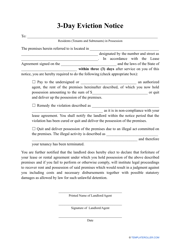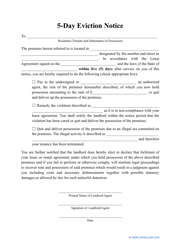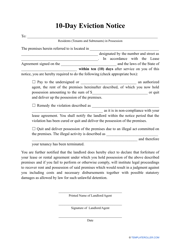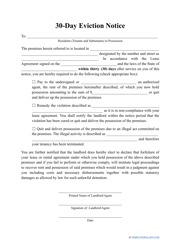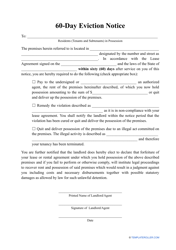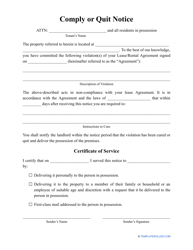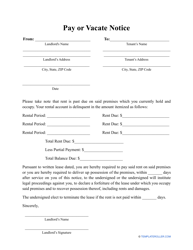How to Handle an Eviction Notice: The Eviction Process Explained

Did you receive an eviction notice? Don't panic. Here's what you need to know about the eviction process and how to handle it appropriately.
What Is an Eviction Notice?
An Eviction Notice is a letter the landlord sends to the tenant informing them of a substantial breach of the residential tenancy agreement. This document mentions the nature of the violation and sets the deadline for the lease termination.
Alternate Names:
- Notice to Quit;
- Notice to Terminate Tenancy.
There are different kinds of eviction notices, ranging from an ultimatum (also known as a "Notice to Cure or Vacate" or "Notice to Pay Rent or Quit") to a demand to fix the situation ("Notice to Comply with Rental Agreement").
How Long Do you Have to Move out After an Eviction Notice?
The process of eviction is not easy and depends on the state regulations, your lease and your situation, but it always starts with a written notice (a warning). Although a handwritten notice is acceptable, it looks much more presentable when properly composed. Most importantly it has to be legally valid.
The time you have to move out (if you need to at all!) will depend on what is written on the notice you receive. Some notices to quit give a 3-days, 7-days or 30-days warning to pay rent. If you pay rent within that period you may continue to occupy the property. If you don't pay, the landlord may begin the official eviction process. This includes taking the matter to court, serving you with the court papers and calling the Sheriff’s department to physically evict you from the property.
If you have a month-to-month lease, the landlord has the right to ask you to move out for any reason. In this case you are given a 30-days notice to vacate the property.
What Are Grounds for an Eviction?
As a tenant, you have responsibilities outlined in your lease agreement. Generally, they include the following:
- Pay rent on time;
- Do not interfere with the rights of the other tenants;
- Keep your property reasonably clean;
- Do nothing illegal on the premises (that includes your guests or sublessees);
- Do not damage the property or the furniture that belongs to the landlord; and
- Move out when the tenancy ends.
If any of these conditions are violated, the landlord can send you a notice and start a legal procedure that will allow them to remove you and your belongings from the property.
Can You Be Evicted without a Court Order?
You cannot be evicted without a court order. However, you must appear in court after you have been served with the court papers. The easiest way for the landlord to have you evicted is for a non-payment of rent. Once the landlord gets the so-called Judgment for Possession, you are given a 3-day notice to vacate the property.
Not what you were looking for? Check out these related articles:
- Find out how to rent out a house;
- Read more about renting your first apartment.
